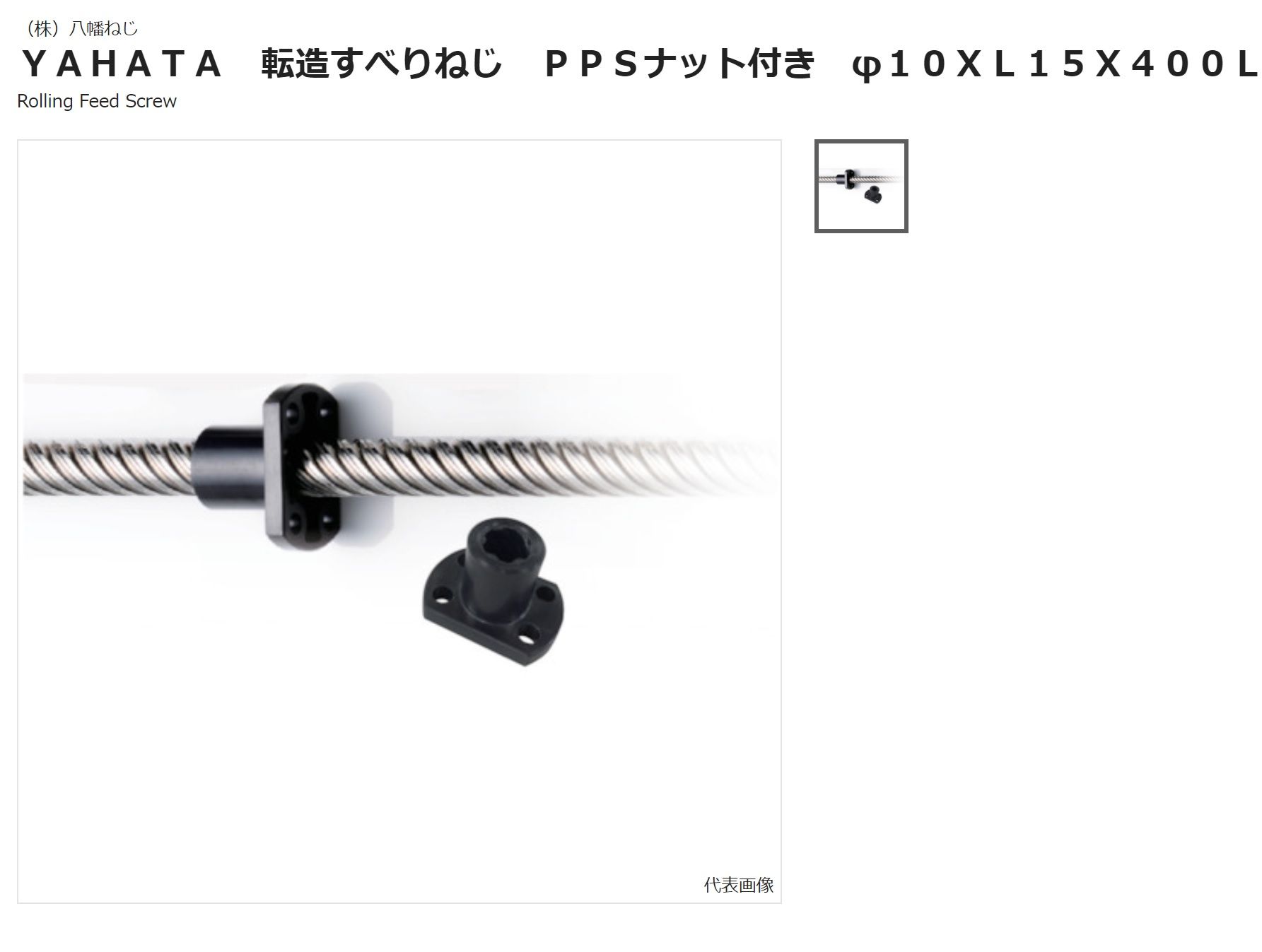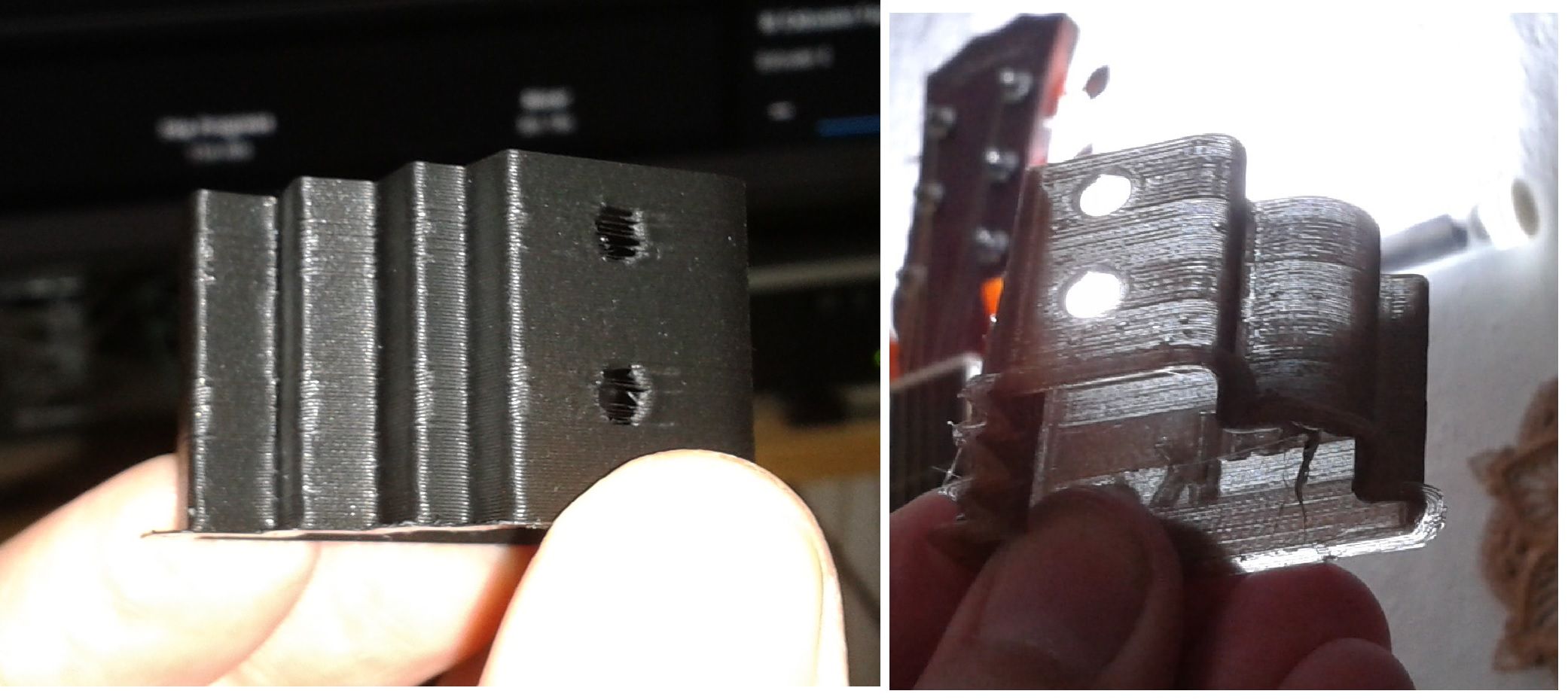Wavy surface problem.
-
@mrehorstdmd
Thank you so much! -
@hiroaki Small diameter smooth pulleys can cause bumps in prints if the belt teeth are contacting the pulley surface. If that is the problem here, it can be fixed by using toothed pulleys, or by replacing the small smooth pulleys with larger smooth pulleys, or by twisting the belts so that the smooth back sides of the belts contact the smooth pulleys.
If you change the pulleys sizes, you may also have to change their positions in order to keep the belts parallel to the guide rails.
-
@mrehorstdmd Hello Yes, both my machines have toothed pulleys for the location belt teeth touches and toothed idler for the location belt teeth touch and smooth idler for the location back side of belt touches. So they seem it's ok. I wondewr if the pulleys located with motors are may be too small. ...
-
@mrehorstdmd Hello I think you were right.
I have changed the motors to better one and now getting better, still not perfect. But I will change the belt to genuine lately and check. -
@hiroaki said in Wavy surface problem.:
@tpra Hello.
From your experience which is better
1.Core XY (By belts)
2.Lead screw or Ball screw.I have never made one moving by lead screws, so I just wondered,
If you have a experience of making one (or some) screw version, please give me your idea.
I couldn't tell if belted coreXY is better than leadscrew i never tried an XY on screws!
I've had the idea to build a machine with Igus high speed lead screws, but budget's not here atm
I'm still struggling with those vertical bands artifacts. It's really driving me crazy. I changed pulleys, rails, belts, tried another PSU, 3 different sets of steppers (from the pancake to the big boys), every possible microstepping combination. Nothing to do.
Now i really have absolutly no idea where the problem comes from.
The only difference i see is all the machines i have that run correctly run rrf2. This particular one runs rrf3. I don't see why it would make any difference though
-
@hiroaki said in Wavy surface problem.:
@tpra Hello.
From your experience which is better
1.Core XY (By belts)
2.Lead screw or Ball screw.User @mendelevium has a leadscrew driven CoreXY, he might be able to tell the pros and cons?
@tpra said in Wavy surface problem.:
The only difference i see is all the machines i have that run correctly run rrf2. This particular one runs rrf3.
We all cross our fingers, that there's no backdraw using RRF3, but may I ask you a favor and print one of those with a printer running RRF2.x ?
-
@o_lampe Hello.
Sure, can you send me the STL file?
Regards -
-
@o_lampe said in Wavy surface problem.:
We all cross our fingers, that there's no backdraw using RRF3, but may I ask you a favor and print one of those with a printer running RRF2.x ?
I have absolutly no idea if it's related to RRF3, and i honestly doubt about it.
I'll still try downgrading to rrf2 because i tried so much things...
It's so hard to be 100% sure that there is no mechanical problem. But i changed so much things that there is not much possibilities left. + i changed one thing at a time so i dunno.At the moment i am 99% sure that it is stepper related.
I have built a moire / VFA stl file that amplifies the problem and will post a test process soon. I am preparing a more rational test approach than what i did before, but it takes a lot time and i'm stuck into SpoolMonitor project atm.Btw i really decided to solve this thing. It's a pain in my quest to perfect print quality

I ordered several other boards and different drivers so i can really tweak all settings. The post about VFA on prusaprinter forum is a treasure, take time to read it, and like people say, be ready to fall into the rabbit hole : https://forum.prusaprinters.org/forum/original-prusa-i3-mk3s-mk3-user-mods-octoprint-enclosures-nozzles-.../stepper-motor-upgrades-to-eliminate-vfa-s-vertical-fine-artifacts/
: https://forum.prusaprinters.org/forum/original-prusa-i3-mk3s-mk3-user-mods-octoprint-enclosures-nozzles-.../stepper-motor-upgrades-to-eliminate-vfa-s-vertical-fine-artifacts/ -
@tpra
I had issues with 0.9 steppers, too. Mainly with lost position. (lost steps, but worse)
But I also know how good my parts looked before I used RTOS firmware. (even most 8-bit RAMPS/Marlin prints looked better). RRF2 was a dead end street, let's hope RRF3 will be worth the wait. -
@o_lampe Hello. I have just now started to print. Let's see!
-
@o_lampe Hello. It's done! How does it look ?


-
@tpra Yes, I agree to you. Maybe slicers make differences!
-
@tpra Maybe I try this in a future....

-
@hiroaki said in Wavy surface problem.:
@o_lampe Hello. It's done! How does it look ?


That looks excelent! Can you tell a bit more about the slicer settings?
Nozzle 0.4 I guess and RRF2.? -
@o_lampe Hello.
Is it ?
Actually I not really satisfied...
That's FIRMWARE_NAME: RepRapFirmware for Duet 2 WiFi/Ethernet FIRMWARE_VERSION: 2.05.1
Nozzle is 0.4mm dia.
Layer thickness is 0.15mm
I made the G code by Simplify 3D.
This machine has 1.8Degree stepper motors. Not 0.9...
Regards -
@hiroaki said in Wavy surface problem.:
Is it ?
Actually I not really satisfied...It also shows vertical lines, same as your 'problematic' printer. But other prints looked really bad around the holes:

-
@o_lampe I think you can egt better result if you increase the retruction ammount. Mine is at this moment 5mm.
Or If your printer is borden, the teflon tube between extruder and nozzul has too much friction or too long.
So when extruder motor stops to stop extruding, it contines extruding.
The following guys had a video how to tune your printer I think.
https://www.youtube.com/watch?v=TDxpVSXmKiE -
So in my desperate quest about those motor vibrations, i switched to Klipper.
It was not that easy, but it solved all my problems. Maybe it's because trinamic chopper values, maybe it's because input shaper somehow deals with steppers vibrations, i don't know.
My tests are not enough serious / scientifically made to pull a conclusion.All i can tell is i spent a lot of time and money on this, and i litteraly searched in every possible direction.
TBH the firmware is the really last thing i suspected.
I know VFA's are something you see in very special cases, but imho rrf default trinamic chopper values should be revised and modified to be closer to what Klipper use.
And it's not like i tried with only one stepper type, i tried a lot of different common steppers on the market. -
You should be able to go back to RRF and command the drivers to use klipper's default settings